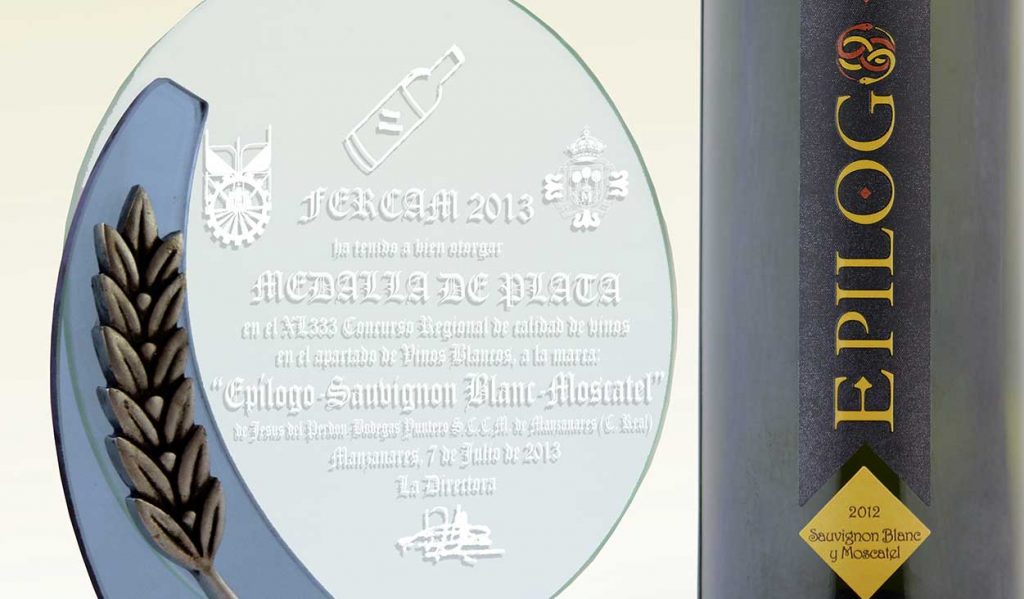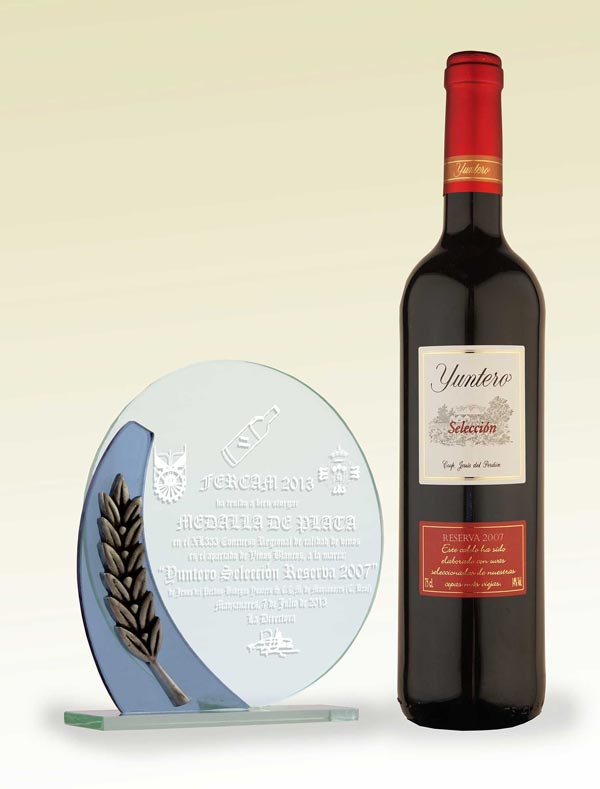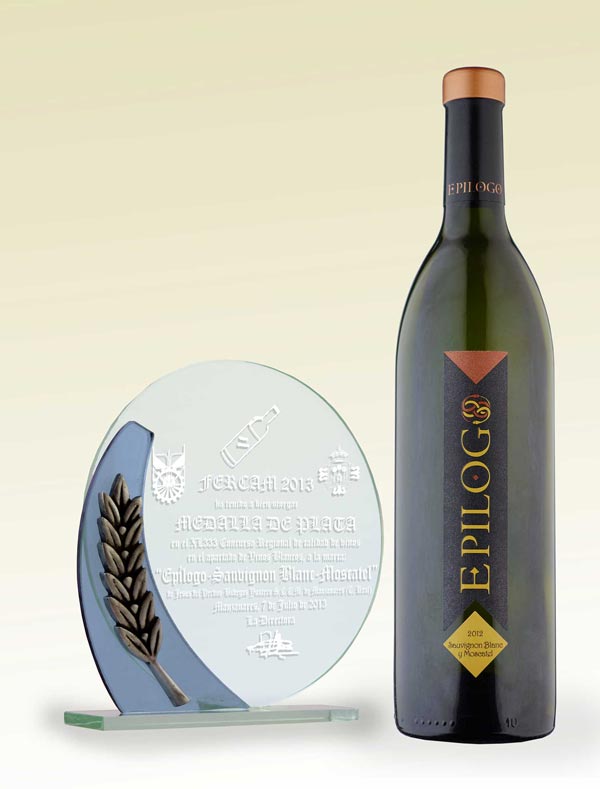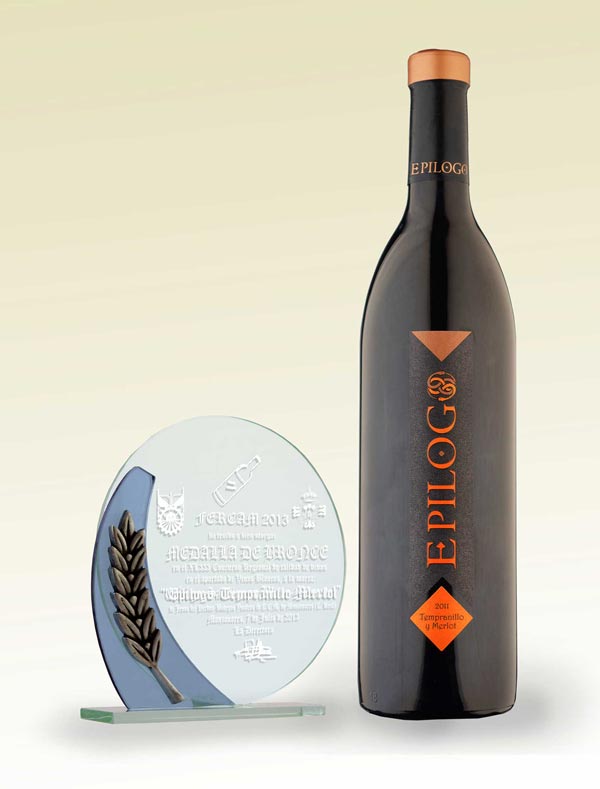The Regional Country Fair of Castilla-La Mancha (FERCAM), which celebrated its 53rd edition in July 2013, takes place in Manzanares (Ciudad Real), the municipality that hosts Yuntero's offices and warehouses.
FERCAM is sponsored by the Manzanares City Council, the Ciudad Real Provincial Council and the Regional Government of Castilla-La Mancha. Among the parallel activities that take place throughout the fair, the Regional Wine Quality Competition which in 2013 celebrated its 43rd anniversary.
In this new edition, the Jesús del Perdón-Bodegas Yuntero Cooperative received three awards: in the white wine category, a silver medal for the 2012 White Epilogue; in the category of reserve red wines, also a silver medal for Yuntero Selección Reserva 2007; and finally, in the category of aged red wines, a bronze medal for the Epílogo Roble 2011.

Yuntero Reserva Selection 2007 (Silver Medal)
With the La Mancha Designation of Origin, it is made 100% with the Tempranillo grape variety. It has a long maceration with fermentation at a temperature of 24-25° C. After this process it is aged for twelve months in mixed oak barrels (French oak bottoms and American oak staves). Before being marketed, it spends two years in the bottle.
Cherry red in color, with a brick-like color, it has great aromatic complexity, highlighting the spicy and balsamic notes of its aging in barrels, as well as roasted notes of coffee and mocha. In the mouth, it is a very round, smooth and elegant wine, with very sweet tannins, and great persistence.
During 2013, Yuntero Selección Reserva 2007 also received the Gold Medal in the prestigious competition International Vinalies, organized by the Union of Oenologists of France, and a Silver Medal in the Zarzillo Awards 2013 of the Government of Castilla-León.


White Epilogue 2012 (Silver Medal)
To create this white wine, the Sauvignon Blanc (90%) and Moscatel de Gran Menudo (10%) grape varieties are used, which are produced separately to later make the final blend. A small pre-fermentation maceration is carried out for about eight hours to achieve a better extraction of the aromatic compounds from the skins (grape skin).
The yolk must is obtained by direct bleeding, without any type of pressing, which is then cleaned by static cold settling for a period ranging between 36 and 48 hours. In order to extract greater aromatic expressiveness, the settled must is fermented at very low temperatures (13-14° C) for about 20 days.
As a result, a bright, pale yellow wine is obtained. With great aromatic intensity: floral and exotic from the Sauvignon blanc variety (grapefruit, mango, passion fruit), and with muscat tones from the muscat variety that gives it an almost perfumed nose.
In the mouth, it is a very fresh wine, with good volume, with a honeyed, soft and silky sensation, and a long and persistent palate.
Oak Epilogue 2011 (Bronze Medal)
It is made with Tempranillo (65%) and Merlot (35%) varieties. The broths from both varieties are made independently with a maceration of approximately ten days, with fermentation of about 24° C. Subsequently, both wines undergo, separately, a light aging in mixed oak barrels (American and French). After five months, the cutting definitive.
It is an intense color, purplish cherry red with a maroon rim. On the nose, the aromas of red forest fruits, violets and fruit compote (currant, blackberry, cherry) intermingle, in addition to the aromas provided by barrel aging such as notes of coconut, vanilla, roasted and smoked. It is very tasty in the mouth, persistent and with a long finish.
During 2013, Epílogo Roble 2011 has also been awarded a Gold Medal and two Silver Medals, respectively, in prestigious international competitions. Challenge International du Vin de Bourg (Francia), in the Berlin Wine Trophy of Germany, and in the Brussels World Competition, held in Slovakia.




